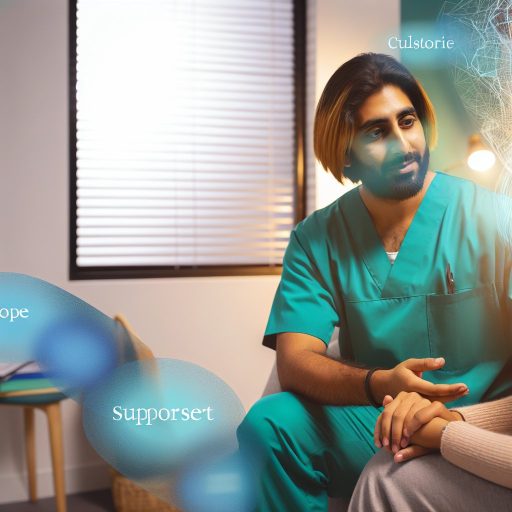Introduction
The healthcare industry in Australia is undergoing significant transformation.
Technological advancements and demographic shifts drive this evolution.
The aging population fuels an increasing demand for healthcare services.
Moreover, the rise of chronic diseases requires innovative approaches to care delivery.
Future-proofing healthcare careers is vital in this dynamic environment.
As the job market evolves, professionals must adapt to new roles and responsibilities.
Employers increasingly seek individuals with specialized skills and knowledge.
Those who embrace lifelong learning will maintain their relevance in this fast-paced industry.
By 2030, we can expect profound changes in the healthcare landscape.
The integration of artificial intelligence will revolutionize diagnostics and treatment planning.
Telehealth will become commonplace, improving access to care in remote areas.
Additionally, personalized medicine will emerge, tailored to individual genetic profiles.
To thrive in this changing job market, healthcare professionals need to focus on emerging roles.
Specializations such as data analytics and health informatics will become critical.
These skills will allow practitioners to leverage technology for better patient outcomes.
Your Personalized Career Strategy
Unlock your potential with tailored career consulting. Get clear, actionable steps designed for your success. Start now!
Get StartedFurthermore, as preventative care gains prominence, new roles will emerge in wellness and community health.
Interdisciplinary collaboration will also become increasingly important.
Professionals from various backgrounds will need to work together to provide comprehensive care.
This collaboration will enhance patient experiences and improve health outcomes.
Future-proofing your healthcare career hinges on adaptability and continuous learning.
Embracing new technologies and acquiring in-demand skills will keep professionals competitive.
By preparing for the challenges and opportunities of 2030, individuals can contribute meaningfully to Australia’s evolving healthcare system.
Current Trends in Healthcare
The Australian healthcare sector is experiencing significant changes driven by various trends.
Understanding these trends is essential for grasping which roles will thrive by 2030.
Here are some key trends reshaping the healthcare landscape:
Technological Advancements
Technology is transforming the way healthcare is delivered and managed.
Three major advancements stand out:
- Telehealth: Telehealth has surged in popularity, especially during the COVID-19 pandemic.
Patients now have the option to consult healthcare providers remotely.
This method improves access to care, particularly for those in rural areas. - Artificial Intelligence (AI): AI is revolutionizing diagnostics and treatment planning.
It enhances decision-making for healthcare professionals.
AI algorithms analyze large data sets, assisting in predicting patient outcomes and personalizing treatment plans. - Robotics: Robotics play a crucial role in surgery and rehabilitation.
Robotic-assisted surgeries reduce recovery times and improve precision.
Additionally, robots in rehabilitation provide tailored exercises that boost patient engagement and recovery.
The Impact of an Aging Population
Australia’s demographic changes are significantly impacting healthcare demand.
The aging population poses both challenges and opportunities:
Stand Out with a Resume That Gets Results
Your career is worth more than a generic template. Let us craft a resume and cover letter that showcase your unique strengths and help you secure that dream job.
Get Hired- Increased Demand for Geriatric Care: As the population ages, the need for geriatric specialists rises.
More healthcare professionals will focus on elderly care.
This shift aligns with the growing prevalence of chronic diseases such as diabetes and heart disease. - Home Healthcare Services: Many older Australians prefer receiving care in their homes.
This desire drives the demand for home healthcare services.
Professionals who can provide personalized care will be in high demand. - Support for Mental Health: Aging can lead to mental health challenges like depression and anxiety.
The healthcare system must cater to the mental health needs of the elderly.
Specialists in geriatric psychiatry will thus become increasingly vital.
Policy Changes and Funding Shifts
The Australian healthcare system is influenced by various policy changes and funding shifts.
These changes impact the delivery of healthcare and shape career opportunities:
- Increased Investment in Preventive Care: The government is placing a greater emphasis on preventive care.
Funding will likely shift towards early detection and educational programs.
This trend will create roles focused on public health education and community outreach. - Integration of Services: There is a move towards integration of health services to improve overall efficiency.
This approach requires professionals skilled in coordinating care across various settings.
Care coordinators and case managers will be essential in this integrated model. - Telehealth Reimbursement Policies: Policies surrounding telehealth reimbursement will evolve.
This evolution could lead to a more robust telehealth infrastructure.
As this area expands, the need for digital health specialists will also rise.
Identifying Future-Proof Roles
As we look towards 2030, it is crucial to analyze the roles projected to flourish in the ever-evolving healthcare landscape.
The healthcare industry continues to adapt, influenced by technology and demographic shifts.
Certain roles are emerging as essential and resilient, ensuring job security and growth.
Understanding these roles can guide aspiring professionals in shaping their careers effectively.
Analysis of Roles Projected to Grow in Demand by 2030
The following roles are expected to see significant growth in demand over the next decade:
- Healthcare Data Analysts: With the rise of electronic health records, professionals who can analyze data will be invaluable.
- Telehealth Specialists: The popularity of telemedicine has soared. Specialists in this realm will provide remote care and facilitate virtual visits.
- Genetic Counselors: As personalized medicine gains traction, genetic counselors will assist patients in understanding genetic testing results.
- Home Health Aides: The aging population promotes a growing need for home health care services. Aides will support seniors and those with chronic illnesses in their homes.
- Health Coaches: With a rising focus on preventive care, health coaches will guide individuals toward healthier lifestyle choices.
- Artificial Intelligence (AI) Specialists: These professionals will create systems that analyze medical data to enhance patient outcomes and streamline processes.
- Virtual Reality (VR) Therapists: The therapeutic use of VR is emerging. Therapists will use it to treat conditions such as PTSD and anxiety.
These roles reflect not only the technological advancements in healthcare but also the changing needs of the population.
They emphasize the fusion of healthcare with technology, demonstrating a distinct shift in the delivery of care.
Importance of Interdisciplinary Skills in Healthcare
In the rapidly changing healthcare environment, interdisciplinary skills have become essential.
Traditional boundaries between roles are blurring, creating a need for professionals to collaborate effectively.
Here are some interdisciplinary skills that are vital:
- Communication Skills: Healthcare professionals must communicate clearly with colleagues, patients, and families.
- Teamwork: Collaborative practice is crucial in delivering comprehensive care.
- Cultural Competency: Understanding and respecting diverse cultural backgrounds enhances the quality of care.
- Problem-Solving Skills: The ability to think critically and address challenges will be invaluable.
- Technological Proficiency: Familiarity with advanced technology is essential.
- Emotional Intelligence: Understanding and managing emotions facilitates better interactions with patients and colleagues.
Incorporating these skills into training and education will prepare future healthcare professionals for collective success.
The healthcare landscape requires practitioners who can operate in diverse and dynamic environments.
Transform Your LinkedIn for Maximum Impact
Elevate your professional brand with a LinkedIn profile that attracts recruiters, showcases your expertise, and maximizes opportunities. Stand out in your industry with a profile built for success.
Boost ProfileKey Characteristics of Roles that are Resilient to Changes in the Job Market
The roles that are resilient are characterized by specific attributes that make them adaptable.
Understanding these characteristics can guide professionals in their career choices.
Here are the key characteristics of resilient healthcare roles:
- Flexibility: Roles that allow for adaptability to new technologies and processes will thrive.
- Continuous Learning: The best roles require ongoing education and skill development.
- Patient-Centered Focus: Roles that emphasize patient care and satisfaction will remain relevant.
- Innovation-Driven: Positions that encourage innovative thinking will withstand change.
- Collaboration-Oriented: Jobs that foster teamwork will prosper.
- Ethical Mindset: Resilient roles must embody ethical standards and practices.
These characteristics ensure that healthcare roles not only meet the current demands but also adapt to future challenges.
As the environment continues to evolve, professionals should embody these traits to secure their relevance and success.
Learn More: How Telehealth is Revolutionizing Australian Healthcare Jobs
Future Healthcare Careers in Australia
As Australia moves toward 2030, technology continues to reshape healthcare.
With this transformation comes the emergence of numerous careers that promise to thrive in a tech-driven environment.
Below, we explore three vital roles that will dominate the healthcare landscape.
Data Analysts in Healthcare Systems
Data analysts play a pivotal role in today’s healthcare landscape.
They transform raw data into insightful information.
This process improves decision-making across healthcare systems.
As healthcare becomes more data-driven, the need for skilled analysts will surge.
Data analysts utilize various tools and techniques.
They analyze patient records, treatment outcomes, and operational efficiencies.
By identifying trends and patterns, they provide actionable recommendations.
These insights can enhance patient care and optimize resource allocation.
Their responsibilities include:
- Collecting and organizing healthcare data from multiple sources.
- Utilizing statistical tools for data analysis.
- Creating visualizations to present data findings effectively.
- Collaborating with healthcare providers to improve care strategies.
- Ensuring compliance with data governance policies.
In the future, data analysts will also engage in predictive analytics.
They will forecast healthcare trends and patient needs.
This capability will enable healthcare systems to address issues proactively.
Therefore, aspiring analysts should focus on data science and analytics training.
Strong communication skills will also benefit their careers significantly.
Telehealth Professionals and Digital Health Specialists
Telehealth has revolutionized how healthcare is delivered.
This innovative service provides remote care through technology.
Telehealth professionals ensure that patients receive quality care from the comfort of their homes.
As demand for telehealth increases, so will job opportunities in this field.
The roles within telehealth include:
- Telehealth nurses who offer remote clinical support.
- Telehealth coordinators managing patient appointments and follow-ups.
- Remote monitoring specialists tracking patient health using wearable devices.
- Health informaticists integrating telehealth systems with electronic medical records.
- Health coaches guiding patients on lifestyle changes through virtual platforms.
Digital health specialists blend healthcare with technology.
They focus on implementing and improving digital tools.
These tools include mobile health apps, online patient portals, and wearable devices.
Their expertise helps healthcare providers manage patient engagement and overall health outcomes.
Key skills for telehealth professionals include:
- Strong understanding of telecommunication technologies.
- Excellent written and verbal communication abilities.
- Empathy and interpersonal skills to build rapport with patients.
- Problem-solving abilities, especially in technical situations.
- Familiarity with healthcare regulations and compliance.
As telehealth continues to expand, the focus will remain on patient-centered care.
Telehealth professionals will need continual training in new technologies.
They must stay updated on best practices for virtual engagement.
This role will not only thrive but will redefine how healthcare interacts with patients.
Cybersecurity Experts Focused on Healthcare
As technology advances, cybersecurity becomes crucial in healthcare.
Protecting patient data is paramount in maintaining trust.
Cybersecurity experts focus on safeguarding sensitive information from cyber threats.
Their expertise will be invaluable as healthcare systems become increasingly digital.
Cyber threats can lead to severe consequences, including data breaches.
These breaches can compromise patient privacy and healthcare operations.
Therefore, cybersecurity professionals are essential to mitigating these risks.
They develop strategies to protect against potential attacks.
Cybersecurity roles in healthcare include:
- Security analysts who monitor networks for vulnerabilities.
- Incident responders who manage and rectify security breaches.
- Risk assessment specialists identifying potential threats to patient data.
- Network security engineers designing secure infrastructures.
- Compliance officers ensuring adherence to healthcare regulations.
Skills for cybersecurity experts involve a strong foundation in IT.
Knowledge of security protocols and data encryption is crucial.
Familiarity with healthcare regulations, such as HIPAA, is also essential.
Ongoing professional development is vital due to the continually evolving threat landscape.
The future of healthcare in Australia will be highly influenced by technology.
The demand for data analysts, telehealth professionals, and cybersecurity experts will increase.
Each of these roles will contribute significantly to enhancing patient care, safety, and system efficiency.
Preparing for these careers requires the right education and ongoing skill development.
As we approach 2030, embracing technology will be crucial for those seeking a successful future in healthcare.
Delve into the Subject: The Future of Nursing Careers in Australia: A 2024 & 2025 Outlook
The healthcare landscape in Australia is evolving rapidly.
As technology advances and society’s needs change, certain fields are emerging as critical.
These new areas will play a significant role in shaping the future of healthcare careers.
Below, we explore three prominent emerging fields in healthcare that are expected to thrive by 2030.
Genomic and Personalized Medicine Careers
Genomic medicine focuses on understanding genetic information to tailor healthcare solutions.
As this field grows, numerous careers will emerge.
These roles will leverage advances in genomic research to enhance patient care.
Key careers in this field include:
- Genetic Counselors: These professionals provide information and support to individuals and families affected by genetic disorders. They assist in interpreting genetic test results and guide family planning decisions.
- Genomic Data Scientists: They analyze complex data from genetic studies. Their work helps advance personalized medicine by identifying genetic markers for various diseases and conditions.
- Clinical Geneticists: Medical doctors specializing in diagnosing and treating genetic disorders. They formulate individualized treatment plans based on a patient’s genetic profile.
- Pharmacogenomics Specialists: These experts analyze how genes affect an individual’s response to medications. Their insights can lead to more effective drug therapies with fewer side effects.
- Biotechnologists: They develop new technologies for the diagnosis and treatment of diseases. Innovations from this field can enhance personalized medicine approaches.
As genomic knowledge becomes more accessible, the demand for skilled professionals will increase.
Healthcare organizations will seek experts to implement genomic testing and interpret findings.
Knowledgeable professionals will help integrate genomics into regular healthcare practice.
This integration will enhance patient outcomes significantly.
Mental Health Professionals Addressing Growing Demand
The growing awareness of mental health issues is reshaping career opportunities in this sector.
The stigma surrounding mental health continues to diminish, prompting individuals to seek help.
Consequently, the demand for mental health professionals will rise significantly.
Prominent career roles within this field include:
- Clinical Psychologists: These professionals diagnose and treat mental health conditions through therapy and interventions. They help individuals achieve better mental well-being.
- Psychiatrists: Medical doctors specializing in mental health disorders. They can prescribe medications and offer a combination of therapy and pharmacological treatments.
- Clinical Social Workers: They provide counseling and support services to those facing mental health challenges. Their focus often includes addressing socio-economic barriers to treatment.
- Mental Health Coaches: These professionals utilize coaching methods to guide individuals in managing their mental health. They offer support to help clients achieve personal goals.
- Substance Abuse Counselors: They specialize in helping individuals struggling with addiction. Support comes through therapy, group sessions, and recovery planning.
In addition to traditional roles, emerging specialties will also arise.
Innovations like teletherapy are gaining traction, allowing professionals to provide care remotely.
This flexibility expands access to mental health services across Australia, including remote and under-served areas.
The rise in mental health initiatives within workplaces also necessitates trained practitioners.
Companies increasingly recognize the importance of employee well-being.
Mental health resources in workplaces can lead to enhanced productivity and employee satisfaction.
Preventative Health and Wellness Coordinators
Preventative health focuses on promoting health to prevent diseases.
This proactive approach is vital in reducing healthcare costs and improving overall community health.
As a result, careers in this field are gaining momentum.
Notable roles within preventative health include:
- Health Educators: These professionals develop programs to educate communities about healthy lifestyle choices. They empower individuals to make informed health decisions.
- Wellness Coaches: They provide guidance and support for clients in achieving personal wellness goals. This role emphasizes behavior change and setting measurable targets.
- Public Health Officials: They work to design and implement public health policies. Their goal is to improve population health and reduce health inequities.
- Nutritionists and Dietitians: They educate individuals about nutrition and meal planning. Proper food choices can dramatically influence overall health and well-being.
- Fitness and Exercise Specialists: These experts promote physical activity as a crucial aspect of health. They design exercise programs tailored to individual needs and goals.
Career opportunities in preventative health will expand as the population ages.
An aging population will increase the emphasis on lifestyle modifications to improve health outcomes.
Studies continually show that preventative measures lead to reduced healthcare needs.
Employers and healthcare systems will need to prioritize preventative strategies.
Initiatives that encourage healthy habits will prove invaluable in promoting long-term health.
Communities will increasingly turn to wellness coordinators to help foster healthy environments.
Future Directions in Healthcare Careers
The future of healthcare in Australia looks promising across various fields.
Genomic medicine, mental health, and preventative health will play pivotal roles in patient care.
Skilled professionals will be in high demand as these sectors expand.
Individuals seeking a career in healthcare should consider these emerging areas.
Each field offers unique opportunities to make meaningful contributions to society.
As we approach 2030, these roles will not only thrive but lead the way in providing comprehensive healthcare solutions.
Planning for a career now in these emerging fields will enable individuals to benefit from the changing landscape.
The healthcare sector is innovative, dynamic, and full of possibilities.
Embracing these changes can lead to fulfilling careers that drive better health outcomes for all.
Gain More Insights: Top Aussie Healthcare Jobs: High Demand Roles in 2024

Future Healthcare Skills in Australia
As we move toward 2030, the healthcare landscape in Australia is evolving rapidly.
New challenges and opportunities are emerging.
To succeed in this changing environment, future healthcare professionals must cultivate a diverse set of essential skills.
These skills span both technical and soft domains, driving innovation and patient care improvement.
Importance of Adaptability and Continuous Learning
Adaptability is vital in the healthcare sector.
The industry experiences constant changes due to technological advancements, regulatory updates, and shifting patient needs.
Professionals must adapt to these changes quickly to remain effective.
Continuous learning plays a significant role in healthcare.
With a strong emphasis on lifelong education, healthcare workers must pursue ongoing training and professional development.
This proactive approach helps professionals stay current with the latest best practices and technologies.
Here are some reasons why adaptability and continuous learning are essential:
- Rapid Technological Advancements: Technology in healthcare evolves swiftly. Professionals must learn new tools and procedures to provide effective care.
- Changing Regulations: Healthcare regulations frequently change. Being adaptable ensures compliance and high-quality patient care.
- Diverse Patient Populations: Today’s healthcare professionals serve increasingly diverse populations. Understanding different cultures and needs is crucial.
- Interdisciplinary Collaboration: Healthcare often involves teamwork across various disciplines. Adaptable professionals can work effectively with others.
- Career Advancement: Continuous learning opens doors for career growth. Professionals who invest in education are more likely to advance.
Technical Skills
Technical skills are foundational in future healthcare careers.
The integration of technology into patient care transforms daily tasks.
As a result, healthcare professionals must develop particular technical competencies, ensuring they can leverage technology effectively.
Some critical technical skills include:
- Data Management: Proficiency in data management is essential for modern healthcare. Professionals will need to analyze patient data to improve outcomes.
- Telemedicine Technologies: With the rise of telehealth services, practitioners must understand telemedicine platforms. This knowledge enhances remote patient interactions.
- Electronic Health Records (EHR): Familiarity with EHR systems is crucial. Professionals must efficiently navigate these systems to manage patient information.
- Healthcare Software Proficiency: Knowledge of various healthcare software applications is necessary. Understanding how to utilize them improves overall efficiency.
- Data Security Awareness: As patient data increasingly enters digital platforms, knowledge of security measures is vital. Professionals must safeguard sensitive information.
Soft Skills
Soft skills are equally important as technical skills for future healthcare professionals.
While technical expertise ensures proficiency, soft skills enhance relationships and communication.
Patients benefit from compassionate care, making these skills indispensable.
Here’s a list of key soft skills to develop:
- Communication: Effective communication is vital in healthcare. Professionals must articulate information clearly to patients and colleagues.
- Empathy: Empathy strengthens the patient-provider relationship. Professionals who demonstrate understanding foster trust and comfort.
- Teamwork: Collaboration is essential in healthcare settings. Professionals must work cohesively with multidisciplinary teams.
- Problem-Solving: Healthcare presents numerous challenges. Strong problem-solving skills enable professionals to navigate these hurdles effectively.
- Time Management: Efficiency is crucial in providing quality care. Professionals must manage their time wisely to prioritize patient needs.
Building a Comprehensive Skill Set
To prepare for the future, healthcare professionals should develop a comprehensive skill set.
Combining technical and soft skills enhances their capacity to provide exceptional care.
Educational institutions must play a proactive role in this process.
Here are some steps to help future professionals build their skills:
- Invest in Education: Pursuing formal education enhances knowledge and expertise. Academic programs should integrate emerging technologies and practices.
- Pursue Certifications: Obtaining certifications validates technical competencies. Professionals should seek relevant certifications in their specialty areas.
- Attend Workshops and Conferences: Participating in professional gatherings fosters continuous learning. These events expose professionals to new ideas and technologies.
- Utilize Online Learning Platforms: Online courses provide flexibility in learning. Future professionals can access various resources at their own pace.
- Engage in Networking: Building relationships within the healthcare community is crucial. Networking can lead to mentorship opportunities and knowledge sharing.
Essential skills for future healthcare professionals in Australia include adaptability, continuous learning, technical competencies, and soft skills.
As the healthcare landscape evolves, professionals must embrace change and commit to lifelong learning.
Developing a comprehensive skill set will ensure success in their careers.
By focusing on these skills, future healthcare workers will thrive in the ever-changing environment and provide quality care.
Those who prioritize their professional growth will make a positive impact on the healthcare sector.
Delve into the Subject: Becoming a Plastic Surgeon in Australia: A Guide
Anticipating the Future of Healthcare in Australia
As we anticipate the future of healthcare in Australia, it becomes essential to consider the educational pathways and professional development necessary for thriving in this dynamic industry.
A solid foundation in healthcare education equips professionals with the knowledge and skills needed for future careers.
Here’s an overview of relevant degrees, the significance of ongoing professional development, and available learning opportunities.
Overview of Relevant Degrees and Certifications
Multiple pathways exist that can lead to successful careers in healthcare.
Here are essential degrees and certifications worth considering:
- Bachelor of Nursing: This degree prepares students for registered nursing. Coursework includes anatomy, physiology, and patient care.
- Master of Public Health (MPH): This advanced degree focuses on community health, epidemiology, and health education, suitable for public health officials.
- Doctor of Medicine (MD): Aspiring physicians benefit from this rigorous program that involves extensive clinical training.
- Master of Clinical Psychology: This degree provides the skills to assess and treat mental health disorders effectively.
- Health Information Management (HIM) Certification: This focus on data management and privacy is crucial for electronic health records.
- Diploma of Personal Training: This certification allows individuals to work as fitness trainers, contributing to overall health and wellness.
- Certificate IV in Health Administration: This program prepares students for administrative roles, ensuring efficient healthcare operations.
- Continuing Professional Development (CPD) opportunities: These can supplement existing qualifications and enhance skills.
Importance of Continuous Professional Development in a Dynamic Field
The healthcare field continually evolves, which makes ongoing professional development vital.
Consider the following reasons for its importance:
- Keeping Up with Advances: Medical practices and technologies advance rapidly. Professionals must stay informed to provide the best care.
- Maintaining Competence: Regular training ensures that healthcare providers maintain their skills and knowledge throughout their careers.
- Adapting to Regulatory Changes: Healthcare policies and regulations frequently change. Professionals need to understand these shifts to comply with laws.
- Enhancing Career Prospects: Continuing education can lead to promotions and expert roles within organizations, boosting career satisfaction.
- Networking Opportunities: Professional development events allow healthcare professionals to connect with peers and industry leaders, fostering collaboration.
- Improving Patient Outcomes: Ongoing learning allows healthcare workers to utilize the latest techniques, ensuring high-quality patient care.
- Personal Growth: Continuous education can lead to increased motivation and job satisfaction, enhancing one’s contribution to the field.
Learning Opportunities through Online Platforms and Workshops
In the current digital age, many resources are at healthcare professionals’ fingertips.
Below are popular avenues for continuous education:
- Online Degree Programs: Accredited universities offer online degrees for flexibility and convenience, enabling students to balance work and studies.
- Webinars: Many organizations host webinars featuring experts who share insights on current trends and best practices.
- Massive Open Online Courses (MOOCs): Platforms like Coursera and edX offer free courses on healthcare topics, expanding knowledge at little to no cost.
- Professional Workshops: Attending hands-on workshops can enhance practical skills, making training more engaging and applicable.
- Certification Programs: Many organizations provide specialized courses and certification programs, validating skills in niches like telehealth and gerontology.
- Mobile Learning Apps: Numerous apps cater to healthcare professionals, offering courses, quizzes, and webinars that can be accessed anywhere.
- Mentorship Programs: Connecting with experienced professionals can provide guidance and valuable insights into career advancement.
The future of healthcare careers in Australia relies heavily on education and continuous development.
Aspiring professionals must explore varied educational pathways, emphasizing relevant degrees and certifications.
By prioritizing ongoing professional development, healthcare workers can adapt to industry changes and enhance their careers and the lives of their patients.
Additionally, embracing available learning opportunities through online platforms and workshops will further empower individuals to thrive in this ever-evolving field.
Preparing for 2030 and beyond requires a commitment to knowledge, adaptability, and personal growth.
Preparing for Future Healthcare Careers
As we reflect on the future of healthcare careers, preparation plays a crucial role.
The healthcare landscape continues to evolve rapidly.
Embracing change is essential for success in this field.
Emerging technologies and demographic shifts will redefine many roles.
Professionals must stay informed and adaptable, ensuring their skills remain relevant.
Investing in education and training opens many opportunities in healthcare.
Upskilling will enable workers to transition into new roles seamlessly.
Lifelong learning becomes a necessity in this dynamic environment.
Those who strategically plan their careers will thrive in the coming years.
It is also vital to understand the significance of resilience.
The Australian healthcare workforce has shown remarkable adaptability during recent challenges.
This resilience will be crucial as new obstacles arise in the future.
Healthcare professionals must remain flexible, ready to respond to changing patient needs and technological advancements.
Future-proofing your career in healthcare is an ongoing process.
Regularly assess your skills and explore new learning avenues.
Networking with other professionals can provide valuable insights and opportunities.
Engaging with industry developments will keep you competitive in the job market.
The importance of preparing for future healthcare careers cannot be overstated.
The roles that will thrive in 2030 require a proactive approach to education and adaptability.
We encourage readers to explore various career paths and invest in their futures.
By doing so, you contribute to a resilient and dynamic healthcare system in Australia.
Ongoing development is essential for success.
The resilience and adaptability of the healthcare workforce is key to meeting future challenges.
Together, we can ensure that the healthcare system remains robust and responsive for generations to come.
Additional Resources
Designing and scaling up integrated youth mental health care – PMC
3. Improvements ahead: How humans and AI might evolve together …




